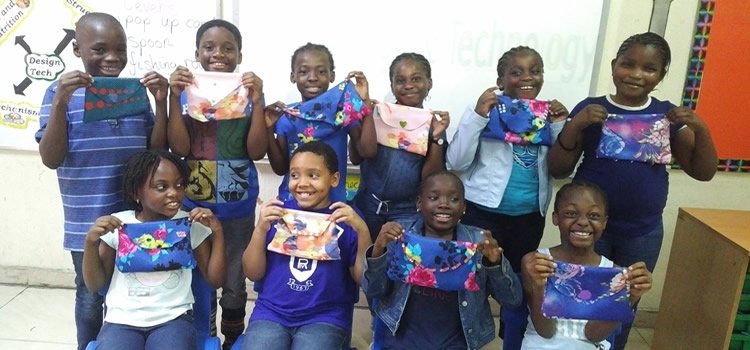Design and technology is an inspiring, rigorous and practical subject. Using creativity and imagination, pupils design and make products that solve real and relevant problems within a variety of contexts, considering their own and others’ needs, wants and values. They acquire a broad range of subject knowledge and draw on disciplines such as mathematics, science, engineering, computing and art. Pupils learn how to take risks, becoming resourceful, innovative, enterprising and capable citizens. Through the evaluation of past and present design and technology, they develop a critical understanding of its impact on daily life and the wider world. High-quality design and technology education makes an essential contribution to the creativity, culture, wealth and well-being of the nation.
Details of the Programme of Study for Design and technology can be found here:
PRIMARY_national_curriculum_Design_and_technology
The national curriculum for design and technology aims to ensure that all pupils:
• develop the creative, technical and practical expertise needed to perform everyday tasks confidently and to participate successfully in an increasingly technological world.
• build and apply a repertoire of knowledge, understanding and skills in order to design and make high-quality prototypes and products for a wide range of users.
• critique, evaluate and test their ideas and products and the work of others.
• understand and apply the principles of nutrition and learn how to cook.
KEYSTAGE 1
When designing and making, pupils will be taught to:
DESIGN
• design purposeful, functional, appealing products for themselves and other users based on design criteria.
• generate, develop, model and communicate their ideas through talking, drawing, templates, mock-ups and, where appropriate, information and communication technology.
MAKE
• select from and use a range of tools and equipment to perform practical tasks [for example, cutting, shaping, joining and finishing].
• select from and use a wide range of materials and components, including construction materials, textiles and ingredients, according to their characteristics.
EVALUATE
• explore and evaluate a range of existing products.
• evaluate their ideas and products against design criteria.
TECHNICAL KNOWLEDGE
• build structures, exploring how they can be made stronger, stiffer and more stable.
• explore and use mechanisms [for example, levers, sliders, wheels and axles], in their products.
COOKING AND NUTRITION
• use the basic principles of a healthy and varied diet to prepare dishes.
• understand where food comes from.
KEYSTAGE 2
When designing and making, pupils will be taught to:
DESIGN
• use research and develop design criteria to inform the design of innovative, functional, appealing products that are fit for purpose, aimed at particular individuals or groups.
• generate, develop, model and communicate their ideas through discussion, annotated sketches, cross-sectional and exploded diagrams, prototypes, pattern pieces and computer-aided design.
MAKE
• select from and use a wider range of tools and equipment to perform practical tasks [for example, cutting, shaping, joining and finishing], accurately.
• select from and use a wider range of materials and components, including construction materials, textiles and ingredients, according to their functional properties and aesthetic qualities.
EVALUATE
• investigate and analyse a range of existing products.
• evaluate their ideas and products against their own design criteria and consider the views of others to improve their work.
• understand how key events and individuals in design and technology have helped shape the world.
TECHNICAL KNOWLEDGE
• apply their understanding of how to strengthen, stiffen and reinforce more complex structures.
• understand and use mechanical systems in their products [for example, gears, pulleys, cams, levers and linkages].
• understand and use electrical systems in their products [for example, series circuits incorporating switches, bulbs, buzzers and motors].
• apply their understanding of computing to program, monitor and control their products.
COOKING AND NUTIRTION
• understand and apply the principles of a healthy and varied diet
• prepare and cook a variety of predominantly savoury dishes using a range of cooking techniques.
• understand seasonality, and know where and how a variety of ingredients are grown, reared, caught and processed.
Brian Bocking says “If you don’t know the difference between theology and religious
studies, then you’re a theologian.”
One may ask; why do we do Religious Studies in School? Is studying Religious Studies relevant today? Are we trying to make our children religious?
Studying RS helps us to understand other people’s beliefs and why they do the things they do. It helps us to decide what values are important to us and why. It helps us draw the line between Political and Religious activities. Questions bothering people’s minds such as; Is there God? Is there life after death? What is the purpose of life? Why does God allow suffering? etc, are all addressed in Religious Studies.
IGCSE Religious Studies is an interesting course in which you look at topics such as Christian beliefs, Muslim or Jewish beliefs, their ways of life, justice, crime and punishment; family life and marriage, the roles of men and women in the society, the concept of life after death, religious pilgrimage and historic places and many others. It enlightens and removes the ignorance that causes prejudice, hatred and violence.


